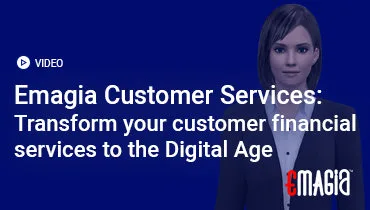A Point of Sale (POS) system is a comprehensive software and hardware solution used in retail and hospitality industries to facilitate transactions. Its primary functions are processing sales, managing inventory, and tracking customer interactions. The POS system is essential for streamlining business operations and enhancing customer service.
What is a POS System?
A Point of Sale (POS) system is the central hub where sales transactions occur in retail and hospitality settings. It combines hardware and software to process sales, manage inventory, and handle customer data. Modern POS systems have evolved to offer advanced features like real-time analytics, customer relationship management (CRM), and integration with e-commerce platforms.
Key Components of a POS System
Hardware Components
- POS Terminal: The primary device used to process transactions.
- Barcode Scanner: For scanning product codes to retrieve prices and product information.
- Receipt Printer: Prints transaction receipts for customers.
- Cash Drawer: Securely stores cash transactions.
- Customer Display: Shows transaction details to customers in real-time.
Software Components
- Sales Software: Processes transactions and manages sales data.
- Inventory Management: Tracks stock levels and product movements.
- Customer Relationship Management (CRM): Stores customer data and purchase history.
- Reporting and Analytics: Generates reports on sales, inventory, and customer behavior.
Types of POS Systems
Traditional POS Systems
Installed on local servers and used primarily in brick-and-mortar stores.
Cloud-Based POS Systems
Operate over the internet, allowing for real-time data access and remote management.
Mobile POS Systems
Utilize smartphones or tablets to process transactions, ideal for businesses on the move.
Self-Service Kiosks
Allow customers to process their own transactions, commonly used in fast-food restaurants and retail stores.
Essential Features of a POS System
Inventory Management
Real-time tracking of stock levels, automated reordering, and low-stock alerts.tillpoint+3KORONA POS+3Fit Small Business+3
Sales Reporting and Analytics
Detailed reports on sales trends, employee performance, and customer behavior.
Customer Relationship Management (CRM)
Stores customer information, purchase history, and preferences to enhance service.
Employee Management
Tracks employee hours, manages schedules, and monitors performance.
Multi-Store Management
Centralized control over multiple store locations, including inventory and sales data.
Integrated Payment Processing
Supports various payment methods, including credit/debit cards, mobile payments, and digital wallets.
Loyalty Programs and Promotions
Manages customer rewards programs and promotional campaigns.
E-commerce Integration
Synchronizes online and offline sales channels for a seamless shopping experience.
Benefits of Implementing a POS System
Enhanced Efficiency
Automates routine tasks, reducing manual errors and saving time.
Improved Customer Experience
Faster transactions, personalized service, and loyalty rewards enhance customer satisfaction.
Accurate Inventory Management
Real-time stock tracking prevents overstocking or stockouts.
Data-Driven Decision Making
Access to detailed reports aids in strategic planning and forecasting.
Scalability
Easily adapts to business growth, supporting additional stores or sales channels.
How to Choose the Right POS System
Assess Business Needs
Identify specific requirements based on business type, size, and industry.
Budget Considerations
Evaluate costs, including hardware, software, and ongoing support fees.
Feature Set
Ensure the POS system offers essential features like inventory management, CRM, and reporting.
User-Friendliness
Choose a system with an intuitive interface for ease of use by staff.
Integration Capabilities
Check for compatibility with existing systems and third-party applications.
Customer Support
Opt for providers offering reliable customer service and technical support.
Top POS Systems
Square POS
Ideal for small businesses, offering a user-friendly interface and affordable pricing.
Shopify POS
Best for e-commerce integration, providing seamless online and offline sales management.
Lightspeed POS
Suitable for retail and hospitality businesses, offering advanced inventory and analytics features.
Toast POS
Designed for restaurants, featuring table management, online ordering, and kitchen display systems.
Clover POS
Offers customizable hardware and software solutions for various business types.
How Emagia Enhances POS System Efficiency
Emagia offers advanced digital automation solutions that complement POS systems, enhancing overall business efficiency.
Intelligent Automation
Emagia’s AI-driven automation streamlines financial processes, reducing manual workload and errors.
Advanced Analytics
Provides deep insights into sales data, customer behavior, and market trends to inform strategic decisions.
Seamless Integration
Easily integrates with existing POS systems, ensuring a unified and efficient workflow.
Enhanced Customer Experience
By automating routine tasks, Emagia allows staff to focus more on customer service, improving satisfaction and loyalty.
Frequently Asked Questions
What is a POS system?
A POS system is a combination of hardware and software that manages sales transactions, inventory, and customer data in retail and hospitality businesses.
How does a POS system work?
It processes sales by scanning items, calculating totals, processing payments, and updating inventory levels in real-time.
What are the benefits of using a POS system?
Benefits include improved efficiency, accurate inventory management, enhanced customer experience, and access to detailed sales analytics.
Can a POS system integrate with e-commerce platforms?
Yes, many modern POS systems offer integration with e-commerce platforms to synchronize online and offline sales channels.
Is a cloud-based POS system better than a traditional one?
Cloud-based POS systems offer advantages like remote access, automatic updates, and scalability, making them a preferred choice for many businesses.
Implementing a robust POS system is crucial for modern businesses aiming to streamline operations, enhance customer satisfaction, and drive growth. By understanding the components, features, and benefits of POS systems, businesses can make informed decisions to select the right solution tailored to their needs.



